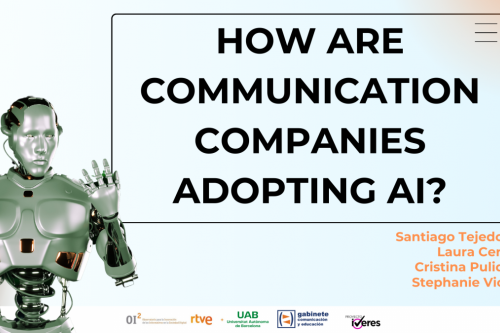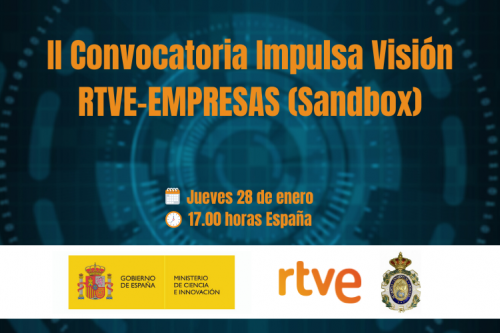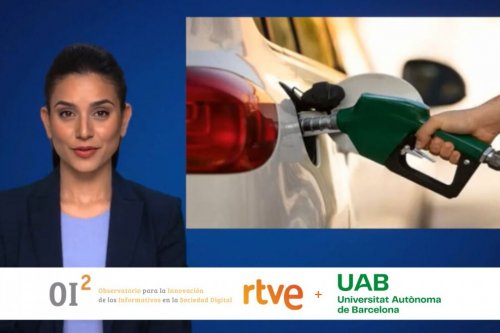2nd International Expert Conference: AI, Ethics and Society: Media, Information & Technology Literacy for the Public Good

12-13 December 2024
Preamble
Media and Information Literacy as a Response to Generative AI
The promise of the Internet to democratize information, digital equity, and the participatory approach to democracy and digital citizenship has never been as important as today, with cutting-edge technology and the increasingly dominating force of artificial intelligence. When Generative AI has become accessible to all, not only computer scientists, it has become necessary to empower citizens with Media and Information Literacy (MIL) knowledge, skills, values and attitudes to navigate safely and wisely the complex AI-powered media, information and communication landscape. MIL imposes, therefore, itself as a viable response to Generative AI to set the balance right between technological advances and ethics in an increasingly digital world, preparing humanity for the empowering and at the same time challenging artificial intelligence era.
Highlighting Digital Competencies and Technology Literacy
Media and Information Literacy and Digital Competencies have become an urgent need to be accessible and empowering to all in order to get the most of these technological developments. Following the recommendation of the President of Moulay Ismail University of Meknes, Professor Ahmed Mouchtachi, this International Expert Conference highlights the importance of technological empowerment through MIL, by giving it visibility as a fundamental MIL literacy. This goes in line with the strategies of UNESCO that has taken the lead in this regard, targeting the enabling power of MIL as a lifelong evolving skill for over half a century and that has been proactive when it included digital literacy, digital competencies and AI literacy in its open access curricula and publications, promoting ethical, human rights-based and people-centred approaches to AI and harnessing the essential role of education.
Rationale of the Conference
This International Conference of Experts is organized by Moulay Ismail, from the University of Meknes in collaboration with UNESCO as Lead Partner and a number of Key International, Regional and National Partners, in the framework of Worldwide Celebrations of Global MIL Week 2024. It will gather MIL experts from around the world to discuss the critical issue of the impacts of AI on Education, Culture and Society and the fundamental role of MIL in this regard. It aims to help make sense of the complex digital communication landscape, not only in terms of communication and the media, but also in terms of education, culture, peace, human rights, sustainable development and knowledge societies in the era of AI, with its great potential for progress and fulfilment, but also its risks to be mitigated, in particular the amplification of disinformation, the rise of hatred, violence and extremism, new digital threats to democracy and fundamental freedoms, as well as digital and linguistic inequalities. So many challenges that put MIL at the centre of the public debate for a humanist, ethical AI that helps us build a better world for all and by all. The new digital literacies required in the age of Generative AI must be sharpened by critical thinking and humanist values of co-existence, peace, conflict prevention, intercultural dialogue and respect for cultural diversity and human rights. This Expert Conference will discuss innovative, multi-disciplinary and multi-sectoral approaches that open up promising prospects at the intersection between AI, ethics and MIL for the social good. These are major issues that determine our collective humanity - present and future – that necessitate a multi-stakeholder approach to build new connections between disciplines and researchers and new partnerships towards setting a New Global MIL Research Agenda, which is one of the main expected outcomes of this Conference.
Working Languages of the Conference: English and Arabic.
Main Themes of the Conference
This Expert Conference will address the following themes:
- Media and Information Literacy as a Response to Generative AI: Innovative Approaches and Best Practices.
- Media and Information Literacy, Critical Thinking and AI Literacies.
- Media and Information Literacy and AI Literacies for Information Integrity, Transparency, Creativity, and Effective Use of Information.
- Media and Information Literacy Leveraging Higher Education for AI Powered Creativity: Wise Human Agency, Academic Integrity and Ethics.
- Media and Information Literacy Leveraging AI for Regulation of Digital Platforms: Frontiers between Freedom of Expression and Information, Harmful Content, and Digital Threats to Democracy, Freedom of Expression, and Self-expression.
- Media and Information Literacy Leveraging AI for Fighting Disinformation and Countering Hate Speech, Online Violence and Extremism.
- Media and Information Literacy Leveraging AI for public interest information in broadcast and digital media, building trust, and Development of Cultural Industries.
- Media and Information Literacy Leveraging AI for Cultural Development, Digital Equity and Linguistic Diversity.
- Media and Information Literacy Leveraging AI in Times of Crises: health, environment, armed and non-armed conflicts.
- Media and Information Literacy and AI: Governing Technology for Peace, Intercultural Dialogue, Digital Inclusion and Human Rights.
- Media and Information Literacy and AI Governance for SDGs and ESG.
- New, multidisciplinary, interdisciplinary, Innovative Applications for Access to Media and Information Literacy and AI Literacies.
- Capitalizing on Media and Information Literacy to Empower All People in the AI Era: AI Literacy paving the way to AI-infused carriers.
Scientific Committee:
Prof. Dr. Ahmed MOUCHTACHI, President of Moulay Ismail University of Meknes, Morocco.
Prof. Dr. Drissia CHOUIT, Conference Chair. She is a Full Professor of Comparative Linguistics, Communication and Media Studies at Moulay Ismail University of Meknes, Co- Chair of the International Steering Committee of UNESCO Media and Information Literacy (MIL) Alliance, Founding Member of UNESCO-UNAOC-UNITWIN University Network on Media and Information Literacy and Intercultural Dialogue, Founding Member of MEDEA, Mediterranean Europe and Africa, Leader of Project MILA “Media and Information Literacy for All” and Former Consultant to UNESCO. She has at her credit a number of publications and invited talks both as a Linguist and as an International Media and Information Literacy Expert.
Dr. Ming-Kuok LIM, Advisor for Communication and Information for UNESCO Office in Rabat. He has been involved in the global campaign to promote the rights of freedom of expression, access to information, press freedom, the safety of women and men journalists as well as tackling the issue of impunity. He is part of the team at UNESCO that supports media and information literacy including strengthening the capacity to fight disinformation, advises on media policy, and develops journalism curricula to reflect the new Sustainable Development Goals (SDGs). He holds a Ph.D. in Mass Communications.
Ms. Somia DJACTA, Chief, Delegation of ICESCO to UNESCO, UNESCO Headquarters, Paris.
Prof. Dr. José Manuel Pérez Tornero, Journalist and Professor at the Autonomous University of Barcelona, Spain. He is the Coordinator of the UNESCO-UNAOC-UNITWIN Cooperation Programme, University Network on Media and Information Literacy and Intercultural Dialogue, Director of the UNESCO Chair in Media and Information Literacy and Quality Journalism , President of Radio Televisión Española, RTVE (2021/22) and Member of the Steering Committee of the European Broadcasting Union, EBU (2021/22).
Prof. Dr. Nikos S. PANAGIOTOU, Professor at the School of Journalism and Mass Media Communication, Aristotle University, Greece. He is the initiator and organizer of Thessaloniki International Media Summer Academy. He serves as the President of Digital Communication Network Global, Director of the Peace Journalism Lab and Scientific Advisor to the Centre for Foreign Policy Planning at the Greek Ministry of Foreign Affairs. He oversees the International Centre for the Safety of Journalists and Media Professionals. He has been awarded the following scholarships: Chevening Scholar of the Foreign and Commonwealth Office UK, RCAP Scholar from APU University Japan, Scholar to Beijing Foreign Studies University, Scholar of the State of Luxembourg.
Prof. Dr. Abdelhamid NFISSI, Founding Member of UNESCO-UNAOC-UNITWIN University Network on Media and Information Literacy and Intercultural Dialogue. He is a Full Professor of Media Linguistics and Translation, Coordinator of the Research Field on Media and Information Literacy in the Arab World at Sidi Mohamed Ben Abdellah University, Fez, Morocco, and Co-Leader of Project MILA “Media and Information Literacy for All”. His fields of interest include media linguistics, intercultural dialogue, and the sociology of media and religion. He has at his credit over 20 publications and over 50 supervision of Ph.D. dissertations
Mr. Alexandre LE VOCI SAYAD, Journalist, scholar, educator and writer. He has been working in the area of education and media for over 23 years as a researcher and consultant on policies to combat misinformation and strengthen media education. He is the Director of ZeitGeist, an innovation hub in education, culture and media, and also works as a consultant in media literacy for the UNESCO headquarters in Paris (France) and Montevideo (Uruguay). On television, he hosts the show "Idade Mídia", on Canal Futura, in its fifth season. He is also a columnist for Revista Educação. He is the author of more than twenty books in the areas of education, technology and communication, the most recent of these (2023) is "Artificial Intelligence and Critical Thinking". He also wrote a young adult novel and served as Co-Chair of the International Steering Committee of UNESCO MIL Alliance. He has lectured in over 15 countries and 12 foreign universities.
Mr. Augusto PRETA, Board Member of the International Institute of Communications (IIC), President of the IIC Italian Chapter, Initiator and President of MEDEA, Mediterranean Europe and Africa, an independent High-Level Group operating in the Mediterranean area. He is an economist and market analyst, with long-established experience in the field of content media and digital markets. As founder and CEO at ITMedia Consulting, he has assisted and advised for almost 30 years public institutions, authorities and major companies in media, telecommunications and the internet industries. He is also member of well-known public and private organisations, such as SIE (Società Italiana degli Economisti), ADEC (Associazione di Diritto ed Economia delle Comunicazioni e dei media digitali) among others. He has been involved in many international research projects, writing influential papers and cooperating with organisations such as: Aspen Institute, European Law and Economics Society, Luigi Einaudi Foundation. He is author of “Economia dei contenuti” (2008), “TV and relevant markets” (2013) and more recently the Fondation Robert Schuman research report “Convergence in Media and Telecom in face of Covid-19” (co-authored with Gerard Pogorel – 2020) and the paper co- financed by the European Parliament, “Digital content and European culture: a new paradigm”.
Prof. Dr. Piero DOMINICI, Associate Professor, sociologist, philosopher, Educator and Systems Thinker. He is the Scientific Director of CHAOS (2011) - International Research and Education Programme on “Complex Human Adaptive Organizations and Systems” -, UNESCO IPL Expert and official delegate to UNESCO, Fellow of the World Academy of Art & Science (WAAS) and of the International Engineering and Technology Institute (IETI), UN Expert and invited speaker and he is Director (Scientific Listening) at the Global Listening Center. Vice President of the WCSA LatAm, Expert of JRC Group - European Commission - and Member of the International Political Science Association (IPSA), he teaches Public Communication, Education towards Complexity and Unpredictability, Sociology of Social Complexity, Global Networks and Security and Intelligence. Complex Systems and Networks, at the University of Perugia, Italy, and he is a referee for prestigious scientific journals worldwide.
Ms. Aichurek USUPBAEVA, Founder and Director of the "Media Sabak" Foundation and LLC CHYRAK Global located in Kyrgyzstan and Winner Global MIL Award 2023. She has extensive experience in developing educational policies, strategies, and curricula on media and information literacy (MIL). With her deep expertise and commitment to advancing media and information literacy, she is a key figure in educational policy development, empowering individuals to navigate the complex media landscape effectively.
Ms. Alia PAPAGEORGIOU, Artistic Director of the Writers Festival of Belgium. She is the President of the Press Club Brussels Europe; she is on the Board of journalismfund.eu and also works as a consultant in media. She is a long-time journalist, former Press Officer for the EU Delegation to Australia and speaker, moderator, writer and editor. She is Greek/Australian and lives in Brussels.
Prof. Dr. Esther HAMBURGER, Founding Member of UNESCO-UNAOC-UNITWIN University Network on Media and Information Literacy and Intercultural Dialogue, Professor of History of Film, Television and Audiovisual Media at the School of Communication and Arts of University of São Paulo, Brazil. With a PhD in Anthropology from the University of Chicago, her work explores the intersection of Culture and Cinema and Media Studies, and has appeared in a range of book collections including Global Television, The Brazil Reader History, Culture, Politics; A companion to Latin American cinema; The Routledge’s companion to media and gender; Television audiences across the world, El cinema de lo real, Miradas cruzadas: sociedad, política y cultura.
Dr. Paulette KERR, Campus Librarian at the University of the West Indies (UWI), Mona in Jamaica, Former Head of the Department of Library and Information Studies at UWI. Her research interests coalesce around areas of information literacy and Jamaican social history. She represents the UWI on the UNESCO-UNAOC-UNITWIN University Network on Media and Information Literacy and Intercultural Dialogue. In 2017, she co-chaired with Dr Paulette Stewart the LOC of the Global MIL Conference and Youth Agenda held in Kingston, Jamaica. She champions the twin causes of media and information literacy education for professionals as well as equipping users of academic libraries to navigate their information worlds.
Prof. Dr. Jesus LAU, Leader and Spokesperson for Information Literacy, Professor at Faculty of Pedagogy, Universidad Veracruzana, Mexico and Past Co-Chair of UNESCO MIL Alliance, with: Law Degree, Universidad Autonoma de Sinaloa, Mexico; Masters Degree in Library Science, Denver University, USA, and Ph.D. in Information Science, Sheffield University, England. Author of more than 200 papers and articles and 20 monographs, including: IFLA Information Literacy Guidelines (12 languages), and author/researcher of UNESCO MIL Global Assessment Framework, among other UNESCO publications. Recipient of numerous awards, such as BRLA Librarian of the Year (El Paso, TX, USA), and FIL-Guadalajara Librarian of the Year (Guadalajara, Mexico); IFLA Medal (Hague, The Netherlands); the SLA Cotton Dana award (DC, USA); the UNESCO Global MIL Award (France), and Faculty of Excellence in Ibero-America Award (Miami, FL, USA).
Dr. Sebastian NOVOMISKY, Chief of Training and Promotion in the Public Defender's Office of Argentina, Doctor in Communication, Expert in Communication, Technologies and Education. He is a Professor and Researcher at the National University of La Plata, postgraduate professor at different universities in Argentina and South America, Author and Editor of the book Navigating the Infodemic with MIL, published by UNESCO and the Public Defender's Office of Argentina, available at the UNESCO World Library in both Spanish and English.
Mr. Ramon Guillermo R. TUAZON, Communication and Information Specialist at the UNESCO Antenna Office in Yangon. Secretary General of the Asian Media Information and Communication Centre, Mr. Tuazon has over 35 years of experience in strategic communication planning, management, and capacity building in diverse development areas. Among his innovative and pioneering MIL projects in Myanmar are integration of MIL in monastic and ethnic education and mobile teaching and MIL in conflict sensitive education. He successfully lobbied for the inclusion of MIL as a core subject in the basic education in the Philippines.
Mr. Nicola BRUNO, Professional journalist and Expert in Media Literacy and Disinformation. He is the co-founder of Dataninja where he manages Open the Box, a project for the dissemination of media and data literacy that in 2023 has been awarded the European Digital Skills Award by the European Commission. He was an Adjunct Professor of Visual Storytelling at the University of Modena and Reggio Emilia, Italy, and a Journalist Fellow at the Reuters Institute for the Study of Journalism at the University of Oxford, UK.






